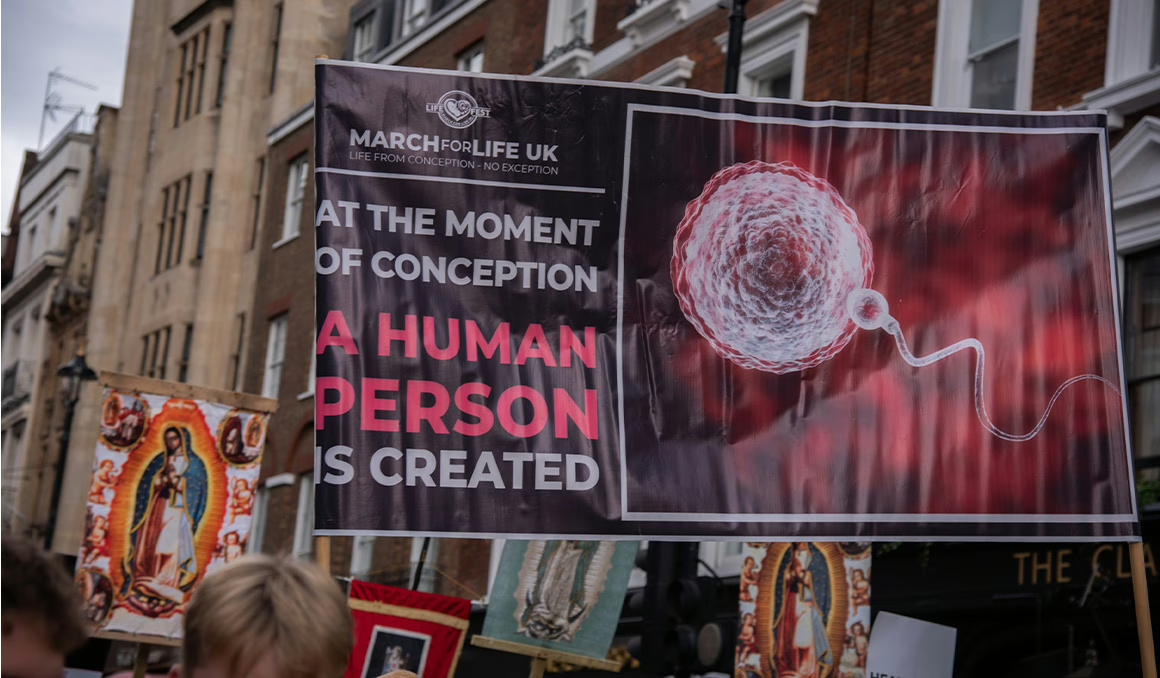In a landmark vote, the UK House of Commons passed an abortion law amendment on 18 June 2025, with 379 votes in favour and 137 against, decriminalising abortion in England and Wales. Proposed by Labour MP Diana Antoniazzi, the reform marks the most significant change to abortion legislation in nearly six decades. However, provisions allowing terminations in late pregnancy, even close to birth, have ignited intense controversy over moral, ethical, legal, and cultural implications, including whether abortion should be universally permitted. The bill awaits further scrutiny in the House of Lords before becoming law.
Old vs New Legislation: A Comparison
Previous Law (1861 Offences Against the Person Act)
- Legal Framework: Under the 1861 Act, abortion was a criminal offence unless it met conditions outlined in the 1967 Abortion Act, such as being within 24 weeks of gestation or necessary to protect the mother’s life or mental health.
- Restrictions: Terminations after 24 weeks were generally illegal, except in cases of severe foetal abnormalities or risks to the mother’s life. Violators faced criminal prosecution, with penalties of up to seven years’ imprisonment.
- Enforcement: Over the past five years, UK police investigated over 100 cases of suspected illegal abortions, some involving miscarriages or stillbirths, subjecting women to distressing investigations and significant psychological and financial burdens.
New Amendment (2025)
- Decriminalisation: The amendment removes criminal liability for abortion under the 1861 Act, meaning women will no longer face police investigation or prosecution in specific circumstances.
- Late-Term Provisions: The bill does not explicitly cap gestational limits, potentially legalising abortions after 24 weeks, even near birth, subject to medical oversight.
- Impact: The reform aims to shield women from unwarranted legal scrutiny, particularly in cases of miscarriage or medically necessary terminations, while prioritising bodily autonomy. Specific details remain subject to further legislative clarification.
Key Changes
- Legal Status: Abortion shifts from a criminal act to a medical procedure, reducing legal threats to women.
- Gestational Limits: The previous 24-week limit is relaxed, potentially allowing late-term abortions, though exact regulations are still under review.
- Enforcement: Police involvement is minimised, with medical professionals and institutions tasked with assessing the legality of terminations.
Arguments For Abortion Reform
Proponents of decriminalisation and relaxed restrictions, often identifying as “pro-choice,” offer the following arguments:
- Bodily Autonomy: Women should have the right to control their bodies and reproductive choices, particularly in cases of rape, incest, or foetal abnormalities. Forcing women to continue pregnancies may violate human rights.
- Reducing Unsafe Abortions: Legalisation lowers the risks of illegal abortions, which historically endangered women’s lives. Data from the 1960s and 1970s shows legalisation significantly reduced maternal mortality rates.
- Psychological and Financial Relief: Criminalising abortion forces women into court, causing trauma and financial strain. MP Antoniazzi has called the old framework “unjust and outdated.”
- Medical and Exceptional Cases: Late-term abortions often involve complex medical or personal circumstances, such as severe foetal anomalies, maternal health risks, or pregnancies resulting from sexual violence. Supporters argue these decisions should rest with women and medical professionals, not lawmakers.
Arguments Against Abortion Reform
Opponents, often identifying as “pro-life,” counter with the following points:
- Foetal Rights: Many argue that a foetus, especially in late pregnancy, possesses human-like qualities, and abortion equates to denying a potential life. Some describe abortions near birth as “immoral and akin to murder.”
- Ethical Boundaries: Critics warn that allowing late-term abortions risks eroding moral standards, particularly when foetuses are viable outside the womb. They argue the state should not remain “morally neutral” on such matters.
- Societal Impact: Opponents fear overly permissive laws could lead to abortion misuse, undermining respect for life. They point to divisive US abortion debates as a cautionary tale.
- Alternatives: Critics advocate for more support, such as financial aid or adoption options, to encourage women to continue pregnancies rather than terminate.
Are Late-Term Abortions Equivalent to Murder?
The question of whether abortions in late pregnancy, particularly near birth, constitute murder is a contentious legal, ethical, and philosophical issue:
- Legal Perspective: UK law does not recognise a foetus as a “person” with full human rights before birth, so abortion is not classified as murder. The new bill reinforces this, framing abortion as a medical decision.
- Ethical Debate: Opponents argue that late-term foetuses, with developed consciousness and viability, are potential lives, and terminating them is ethically questionable, especially near birth. Some describe it as “shocking and wrong.”
- Proponents’ View: Supporters counter that late-term abortions typically occur in extreme cases, such as non-viable foetuses, maternal health risks, or pregnancies from sexual violence. They argue equating abortion to murder overlooks women’s health and autonomy, with medical oversight ensuring rigorous decision-making.
- Public Sentiment: Opinions are deeply polarised, with some advocating strict limits on late-term abortions and others supporting women’s and medical professionals’ discretion.
Cultural Influences: Patriarchy and Gender-Selective Abortion
Certain ethnic or cultural groups, such as some South Asian, East Asian, or Middle Eastern communities, exhibit patriarchal traditions that value male offspring for economic, social, or religious reasons, potentially influencing abortion decisions, particularly gender-selective terminations or coerced abortions.
- Cultural Context: In some cultures, male heirs are prioritised for family lineage, inheritance, or status. Studies show that gender-selective abortions have occurred in UK South Asian communities, especially after non-invasive prenatal testing (NIPT) identifies foetal sex early in pregnancy.
- Impact of the New Law: By decriminalising abortion and relaxing gestational limits, the bill may facilitate gender-selective abortions, particularly in late pregnancy, potentially exacerbating such practices in patriarchal communities.
- Coerced Abortions: Women in these communities may face family or spousal pressure to terminate pregnancies if the foetus is female. A 2020 UK study found that some South Asian women reported psychological or financial coercion from family members over foetal gender, leading to involuntary abortions.
- Data: UK health data suggests a rise in gender-selective abortions among certain immigrant communities, particularly after ultrasound or genetic testing. While exact figures are hard to verify, estimates suggest hundreds to thousands of cases annually are gender-related.
- Controversy: Proponents argue women should retain ultimate decision-making power, even for gender selection, to avoid unsafe illegal abortions. Critics warn that gender-selective abortions reinforce sexism, particularly in patriarchal cultures, undermining women’s autonomy through family pressure.
Should Abortion Be Universally Permitted?
The bill’s decriminalisation and relaxed gestational limits raise a critical question: should abortion be universally permitted, or should exceptions be carved out for specific cases, such as mental health crises or pregnancies from sexual violence?
- Arguments for Universal Permission:
- Simplified Legislation: A blanket policy eliminates legal ambiguities, ensuring women’s autonomy without bureaucratic hurdles. This protects victims of rape, incest, or coercion from further trauma.
- Mental Health Considerations: Women facing severe mental health issues (e.g., depression, anxiety, or PTSD) may be unable to continue pregnancies. A universal policy ensures timely support without requiring proof of specific conditions. The Royal College of Obstetricians and Gynaecologists notes mental health as a common reason for late-term abortions.
- Sexual Violence Exceptions: For pregnancies resulting from rape or incest, a universal policy ensures swift termination, preventing delays that exacerbate trauma. Research indicates rape-related pregnancies occur at rates comparable to consensual intercourse, particularly among younger victims.
- Medical Efficiency: A blanket policy reduces administrative burdens on healthcare and legal systems, allowing medical professionals to focus on care rather than legal assessments.
- Arguments Against Universal Permission:
- Ethical Risks: Critics argue that universal permission could lead to misuse, such as non-medical late-term abortions or gender-selective terminations, particularly in patriarchal communities. They advocate for restrictions like gestational caps or medical necessity reviews.
- Foetal Rights: Opponents stress that late-term foetuses, often viable, deserve consideration. They call for stricter conditions on late-term abortions to balance maternal and foetal rights.
- Societal Concerns: Universal permission may amplify gender-selective or coerced abortions, especially in communities with patriarchal norms, where women may face pressure to terminate. Critics suggest targeted exceptions for sexual violence or mental health instead of broad liberalisation.
- Medical Ethics: Some healthcare professionals oppose blanket permission, arguing that late-term abortions should require independent medical review to ensure decisions align with ethical and medical standards.
- Middle Ground: Experts propose a compromise, allowing exceptions for sexual violence or severe mental health issues but maintaining gestational limits or medical oversight for other cases. The British Medical Association suggests requiring two doctors’ approval for abortions after 24 weeks to balance autonomy and ethics.
Proposed Solutions
- Support for Sexual Violence and Mental Health: Provide specialised counselling, legal aid, and medical support for survivors of sexual violence or those with mental health issues, ensuring autonomous decision-making free from external pressure.
- Curbing Gender-Selective Abortions: Strengthen regulations on non-medical gender testing and promote community education to challenge patriarchal norms.
- Protecting Autonomy: Implement policies to identify and address coerced abortions, offering shelters and legal protections for women in high-pressure cultural contexts.
- Data and Monitoring: Establish a database to track abortion reasons, particularly gender-selective and coerced cases, to inform targeted policies.
- Balancing Ethics and Law: Clarify conditions for late-term abortions, such as requiring dual medical approval, while ensuring swift access for sexual violence victims and those with mental health needs.
Conclusion
The Labour government’s abortion law reform represents a seismic shift in UK policy, prioritising women’s autonomy and eliminating criminal penalties. However, provisions for late-term abortions and decriminalisation raise concerns about gender-selective and coerced terminations in patriarchal communities, as well as the debate over universal permission versus targeted exceptions. Proponents champion women’s rights and the needs of sexual violence survivors or those with mental health challenges, while opponents call for safeguards to protect foetal rights and societal ethics. As the bill heads to the House of Lords, heated debates among the public, medical professionals, and policymakers are set to intensify, with the final details shaping its impact on the UK’s diverse society.
Discover more from “Bridging Hongkongers. Reporting Truth.”
Subscribe to get the latest posts sent to your email.




